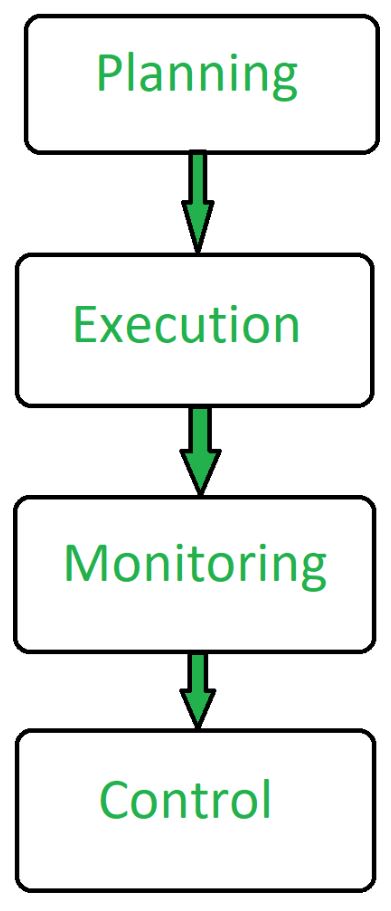Note 1: Software Project Management
Software Project Management (SPM) is a proper way of planning and leading software projects. It is a part of project management in which software projects are planned, implemented, monitored and controlled.
Need of Software Project Management:
Software is an non-physical product. Software development is a new stream in business and there is very little experience in building software products. Most of the software products are made to fit client’s requirements. The most important is that the basic technology changes and advances so frequently and rapidly that experience of one product may not be applied to the other one. Such type of business and environmental constraints increase risk in software development hence it is essential to manage software projects efficiently.
It is necessary for an organization to deliver quality product, keeping the cost within client’s budget constrain and deliver the project as per scheduled. Hence in order, software project management is necessary to incorporate user requirements along with budget and time constraints.
Software Project Management consists of several different type of managements:
- Conflict Management:
Conflict management is the process to restrict the negative features of conflict while increasing the positive features of conflict. The goal of conflict management is to improve learning and group results including efficacy or performance in an organizational setting. Properly managed conflict can enhance group results - Risk Management:
Risk management is the analysis and identification of risks that is followed by synchronized and economical implementation of resources to minimize, operate and control the possibility or effect of unfortunate events or to maximize the realization of opportunities. - Requirement Management:
It is the process of analyzing, prioritizing, tracing and documenting on requirements and then supervising change and communicating to pertinent stakeholders. It is a continuous process during a project. - Change Management:
Change management is a systematic approach for dealing with the transition or transformation of an organization’s goals, processes or technologies. The purpose of change management is to execute strategies for effecting change, controlling change and helping people to adapt to change. - Software Configuration Management:
Software configuration management is the process of controlling and tracing changes in the software, part of the larger cross-disciplinary field of configuration management. Software configuration management include revision control and the inauguration of baselines. - Release Management:
Release Management is the task of planning, controlling and scheduling the build in deploying releases. Release management ensures that organization delivers new and enhanced services required by the customer, while protecting the integrity of existing services.
Aspects of Software Project Management:

Advantages of Software Project Management:
- It helps in planning of software development.
- Implementation of software development is made easy.
- Monitoring and controlling are aspects of software project management.
- It overall manages to save time and cost for software development.

Really informative post about software project management. Also product engineering will helpful to complete the process development process. Checkout to here more about product engineering services and how it's helps for software project management.
ReplyDelete